The Battle for the Future of the Blazers is Just Beginning
Phil Knight and the NBA are turning up the pressure on Jody Allen to sell the team.
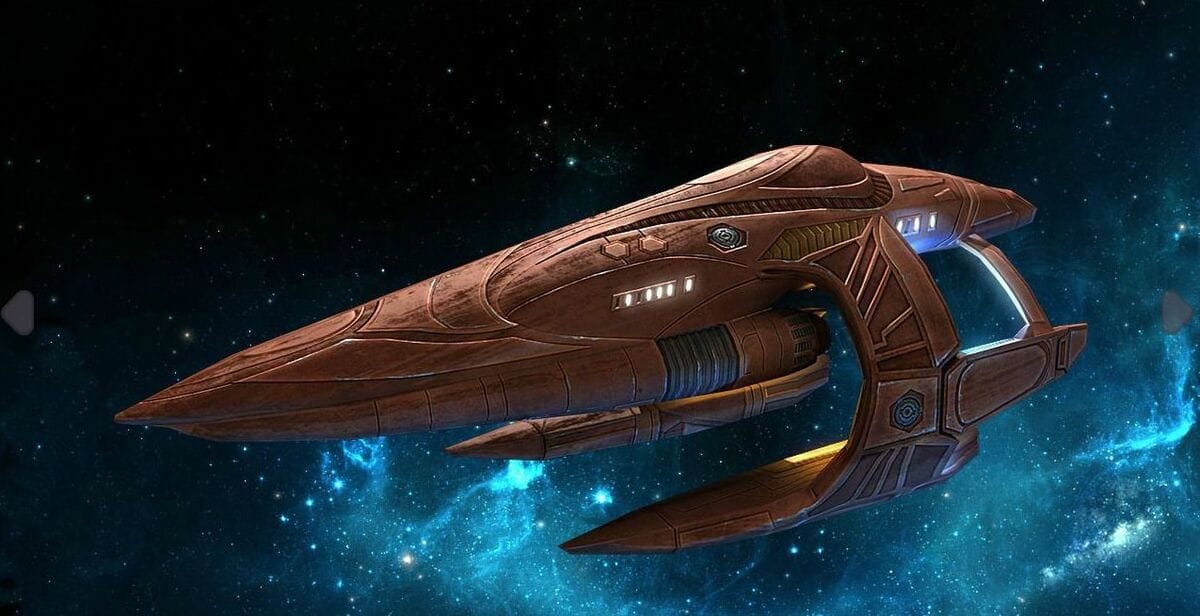
Publicly, the Portland Trail Blazers say they are not for sale.
The franchise's future has been cloudy since longtime owner Paul Allen passed away in October of 2018 and his sister, Jody, took over control of his estate. By the terms of the Paul G. Allen Trust, over which Jody Allen is the sole trustee, all of his assets—including the Blazers, the Seattle Seahawks and various businesses and real estate he owns—must be sold at some point to fund his various philanthropic efforts.
During those four years, the timing of a sale and the buyer has been a topic of much interest around the NBA. For a while, Oracle co-founder Larry Ellison, who has been trying to buy an NBA team for over a decade, was widely rumored behind the scenes to be the pre-approved frontrunner whenever the Blazers were eventually sold. It appears he is no longer in the picture, and the league's new preferred buyer is Phil Knight, who made an offer last month.
Still unknown are the exact terms the trust lays out for how and when the team will be sold. It's possible that the Blazers are required to be auctioned off to the highest bidder rather than going to an owner Jody Allen and the league agree on for other reasons.
It's uncommon for American professional sports teams to be held in a trust. Last month, a group led by an heir to the Walmart fortune agreed to buy the Denver Broncos from late owner Pat Bowlen's trust for $4.65 billion. Bowlen died in 2019; the trustees went through multiple rounds of bidding before the Walton-Penner group emerged victorious.
There could be a similar process at play with the Blazers. The fact that the Broncos have already been sold when Bowlen passed away after Paul Allen did suggests that these sales don't necessarily have to take "10 to 20 years," as Jody Allen said in a recent statement.
The NBA would certainly like for it to be resolved sooner than that. The efforts of the league, and Knight, to get it done are only just beginning. Things are going to get ugly over the next year as this all plays out.
First, a timeline of how all of this has unfolded over the past three months:
- April 10: Friend of the program John Canzano reports, citing a Vulcan source, that the Blazers are being "prepared for auction" within the next 12 to 18 months.
- June 2: ESPN reports that Nike founder Phil Knight and Dodgers minority owner Alan Smolinisky have submitted a written offer of $2 billion for the team and "plan to remain aggressive" in getting a deal completed. In response to the report, the Blazers issue a statement that reads: "An offer was made by Phil Knight. The team remains not for sale."
- June 2: Later that day, at his annual press conference before Game 1 of the Finals in San Francisco, NBA commissioner Adam Silver is asked about Knight's offer to buy the Blazers. He responds that he doesn't know the specifics of the timeline laid out by Paul Allen's trust, but that "at some point, it will be for sale."
- July 5: Jody Allen releases a statement on behalf of both the Blazers and Seahawks, seemingly unprompted, reiterating that "neither of the teams is for sale and there are no sales discussions happening."
- July 6: Ron Wyden, Oregon's senior U.S. Senator, gives an interview to Willamette Week about the Blazers' future in Portland. He calls it "wonderful news" that Knight is interested in buying the team and adds that he's been in touch with Silver and he "can’t get into any details, but I’m pretty sure that there’s a lot of discussion going on right now."
- July 7: The New York Post publishes a story titled "'Toxic' Trail Blazers owner Jody Allen should sell team, say insiders." The story, authored by Sara Nathan, quotes former Blazers and Nike executive Larry Miller, as well as several anonymous sources, and lays out details of a toxic organizational culture under Jody Allen, along with various allegations of misconduct from her own past that had been reported previously. The story also quotes an anonymous source who claimed Allen wasn't returning Damian Lillard's calls or emails, which Lillard refuted in a statement to Yahoo Sports.
This is where it's worth pausing to unpack things a little bit.
The Wyden interview and the Post article go a long way in explaining why Jody Allen released a statement that the teams weren't for sale that wasn't in response to anything recent. She surely got word of an upcoming media blitz to get the public on the side of those who want her to sell. Otherwise, why would she give a statement out of the blue that only served to put the Blazers' ownership future squarely back in the news cycle when it wasn't being talked about much in the weeks since Knight's reported offer? In the nearly four years since her brother's passing, Jody hasn't given a single interview or been made available to the media in any way beyond the July 5 statement.
Larry Miller, the only source who spoke on the record for the Post story, is quoted as saying Jody Allen should "absolutely take [Knight's] offer." In the story, Miller is only introduced as a "former Trail Blazers president," a job he held from 2007 to 2012. Nowhere is it mentioned that before that, from 1997 to 2006, he worked in various roles at Nike, including seven years as president of Jordan Brand. Since leaving the Blazers, he's returned to Jordan Brand as chairman, a position he still holds today. That would seem to be a relevant detail to include in a story where Miller is advocating for the Blazers to be sold to a group led by the founder of Nike.
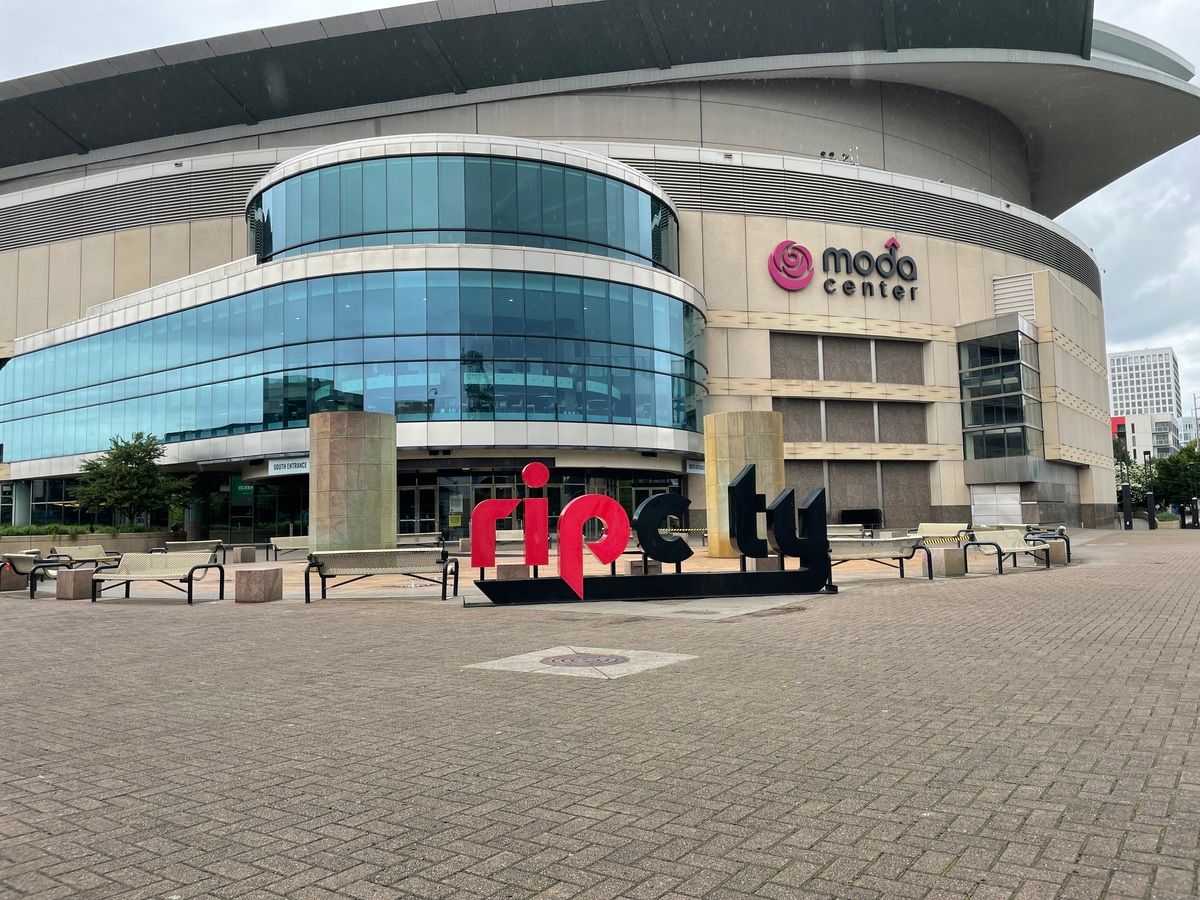
Some people close to the situation feel it was a tactical error for Miller to give this interview, if the end goal is to get Jody Allen to sell the team to Phil Knight. But I've also heard there are more stories like this coming. The idea appears to be to ratchet up the public pressure by getting as many unflattering things about her out in the open as possible until she caves and agrees to sell. All of the disturbing allegations about her past that were included in the Post story were already out there, but this may have just been the opening shot.
Silver wants Knight to be the Blazers' next owner, just as every sports commissioner of the past 40 years has tried to entice him to buy a team. Now that the 84-year-old Knight is actually interested for the first time in owning one, there's going to be a coordinated effort from all parties involved here to make it happen while he's still around.
Will it work? Who can say? You don't get to be as rich as Jody Allen, or Phil Knight, by caring too much about optics. And in the case of both the Blazers and the Seahawks, it's in her best financial interests to wait it out as long as she can before selling.
The terms of the Paul G. Allen Trust stipulate that not only do all of his assets have to be sold following his death, but that all of the proceeds from those sales must go to his charitable interests, meaning Jody herself wouldn't get to pocket any of that money. They've already started selling off his assets—his superyacht "Octopus" sold last August for $278 million.
Since the profits from the sale of the Blazers and Seahawks aren't going to her, one would think that it wouldn't make a difference to her when they sell or how much they go for, right?
No, actually.
As far as the Blazers are concerned, there is some upcoming league business that she would benefit greatly from seeing resolved before she sells.For one thing, there's the completion of the NBA's upcoming broadcast rights deal, which will kick in after the 2024-25 season. The last deal, which went into effect in 2016, paid the league $24 billion over nine years and caused a massive spike in the salary cap that allowed the Warriors to sign Kevin Durant as a free agent. (Blazers fans will remember that offseason as the Evan Turner/Allen Crabbe/Meyers Leonard summer).
The next media contract is expected to be even bigger and bring even more revenue into the NBA. At least one of the streaming platforms (Amazon, Apple, Netflix, etc.) will likely get in on the action along with the incumbent television partners, ESPN and Turner.
There's also the matter of expansion. Silver said at his Finals press conference that the league is not considering adding teams, but it's widely known within league circles that plans are already in motion for Seattle and Las Vegas to get franchises sometime in the next few years. Two new teams means two new owners buying into the league, each at a price of easily upwards of $2 billion, likely closer to $3 billion. And unlike the TV rights deal, expansion money doesn't go into the pot of Basketball-Related Income that the owners have to split 50-50 with the players' union.
Between those expansion fees and the windfall from the upcoming TV contract, that's potentially hundreds of millions of dollars Jody Allen could keep for herself before selling the Blazers to fund her brother's passion projects—if she's able to hang onto the team until 2025. Knight and the league office are doing everything possible to speed the process up and get the sale done within the next year.
It's worth noting that, while the team has made a public show out of Jody's presence in the war room on draft night and Lillard and Joe Cronin have repeatedly insisted that, no, she isn't actually an absentee owner, it was Vulcan Sports vice chair Bert Kolde, not Jody, who was in Las Vegas this week representing the Blazers at the NBA's annual Board of Governors meetings. It makes sense for her to keep a low profile while hit pieces like the one from the New York Post are coming out—which, again, is going to continue over the coming weeks based on what I've heard.
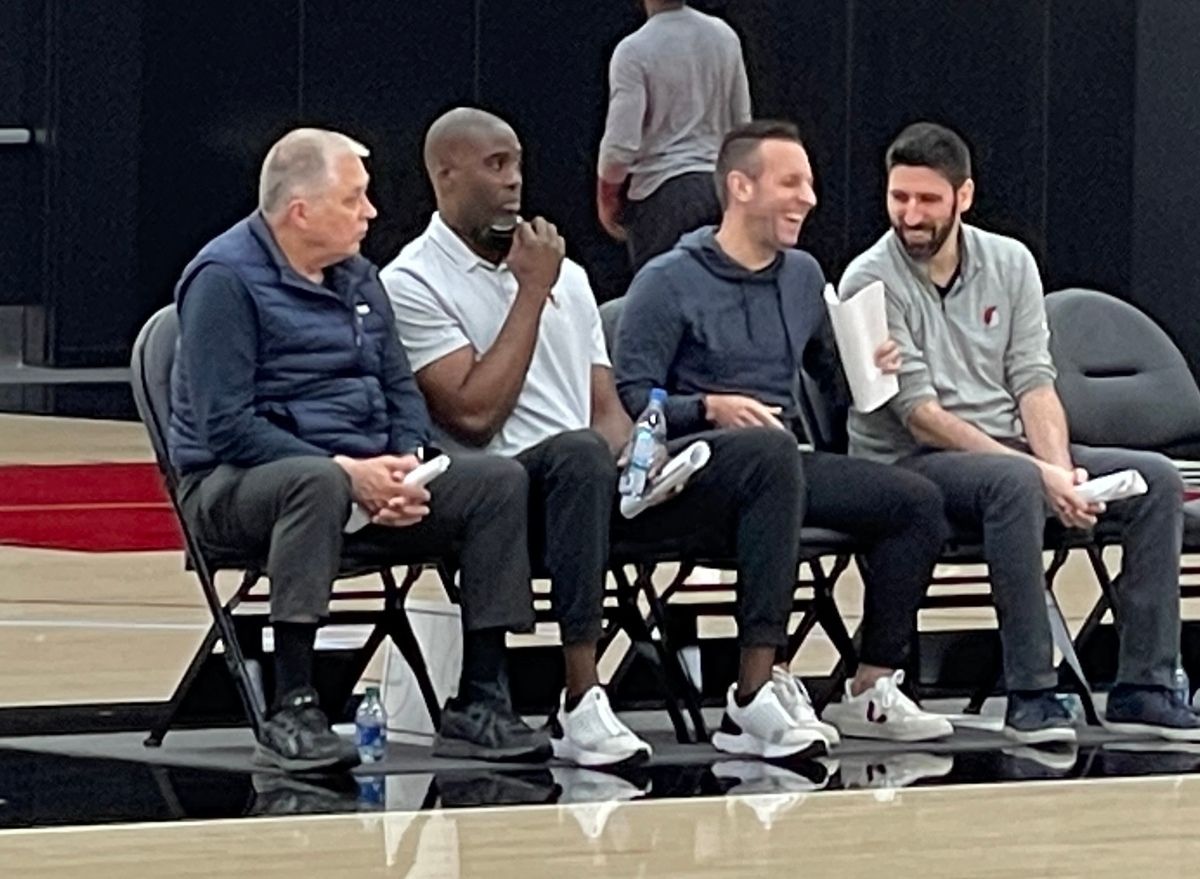
Kolde, Paul Allen's former college roommate and one of his closest advisers and friends, is widely understood to be the person truly running the Blazers and the Seahawks since his death. He is not generally well-liked in and around the organization. One of the key points of the Post story is that, while Paul Allen consulted him on major decisions when he was alive, he would ultimately have the final say; under Jody's leadership, Kolde is the one calling the shots.
The NFL's Seahawks, the other sports team in the Paul Allen trust, also come with a strong financial incentive for the Vulcans to hold on another two years before selling. A bond measure passed by the state of Washington when the Seahawks' stadium, currently known as Lumen Field, was built in the late 1990s stipulates that if the team is sold within 25 years of the publicly-financed stadium opening, the state will receive a 10 percent cut of the sale price. Any sale after May 2, 2024 will not be subject to that law.
Unlike Lumen Field, which is owned by the state of Washington, the Moda Center is currently a part of Paul Allen's private asset portfolio. The arena was financed in part by the city of Portland when it was built in the 1990s, and when Allen's Oregon Arena Corporation filed for bankruptcy in 2004, part of the settlement involved Allen forfeiting ownership of the building in exchange for not repaying the bonds used for its construction. Three years later, Allen bought the arena back using his own money, and it remains under the ownership of Vulcan, Inc. to this day.
The building will, presumably, be part of the eventual sale of the Trail Blazers. Alan Smolinisky, Knight's partner in the recent bid, made his fortune in real estate and would likely have ambitions of redeveloping the property around the arena with new shops and restaurants. That's going to be a whole different negotiation with the city. (This breakdown of the Moda Center's current status and financials in Willamette Week is worth reading.)
As complicated as all of this is, don't expect the Trail Blazers' fate to take Jody Allen's stated 10 to 20 years to resolve. The NBA now has a hand-picked buyer who happens to be one of the most powerful figures in the history of sports, and who also happens to be in his mid-80s without many more years to waste.
One way or another, this is going to get done, and it's going to happen sooner than you think.
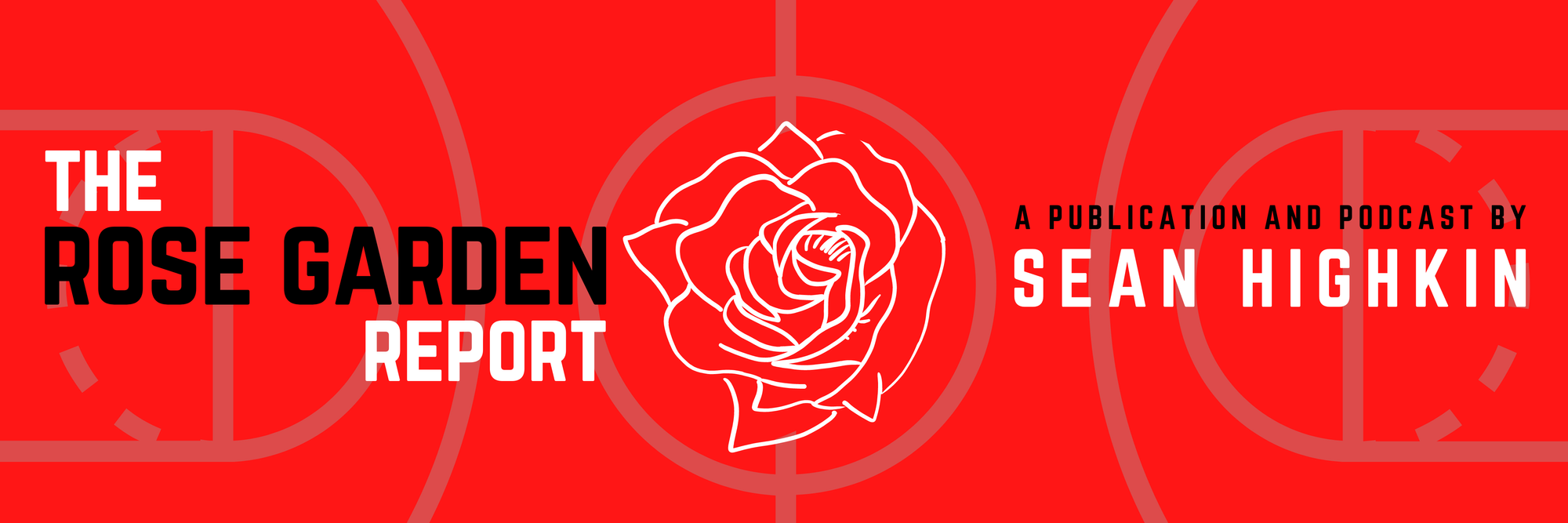


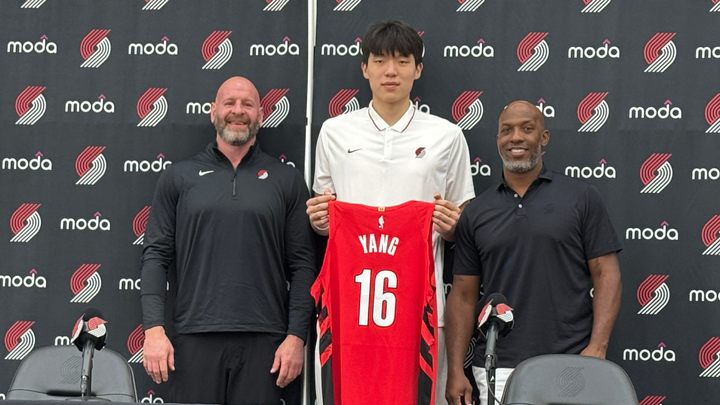
Comments ()